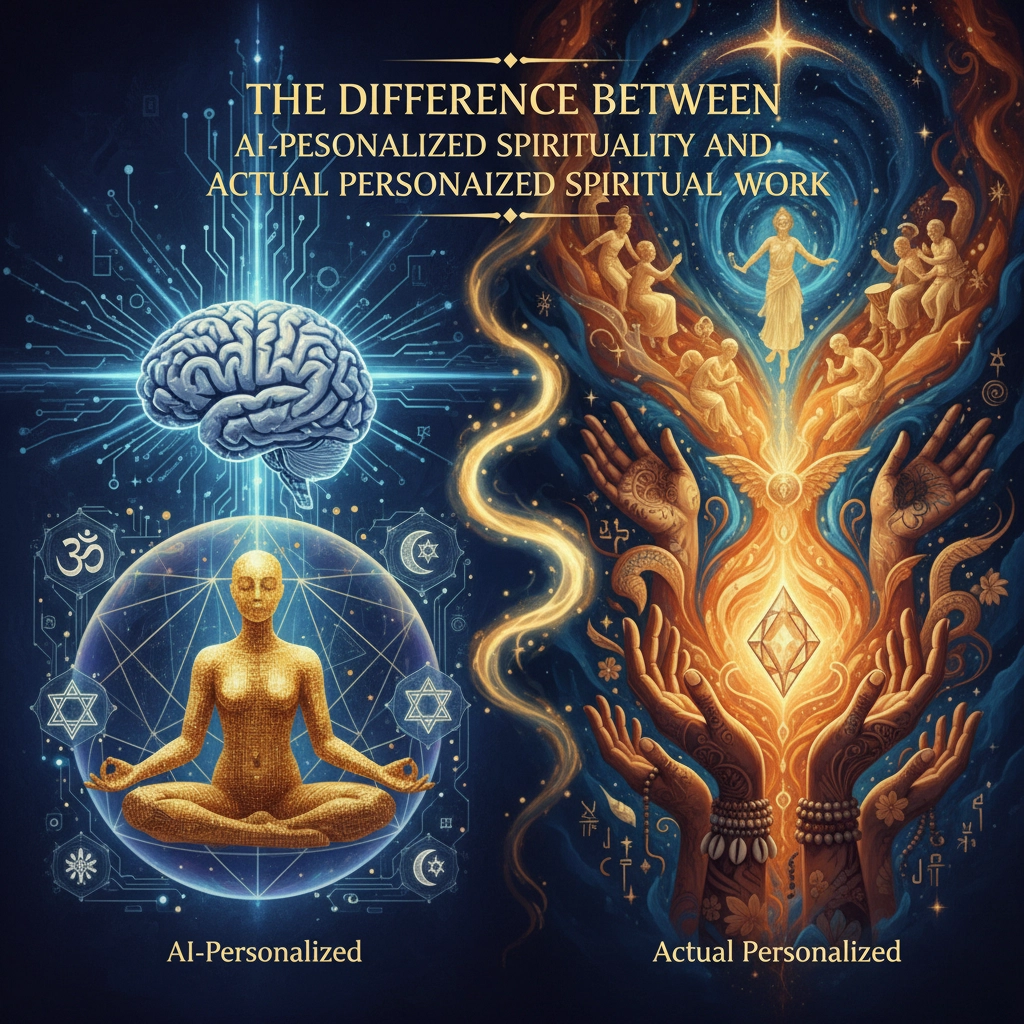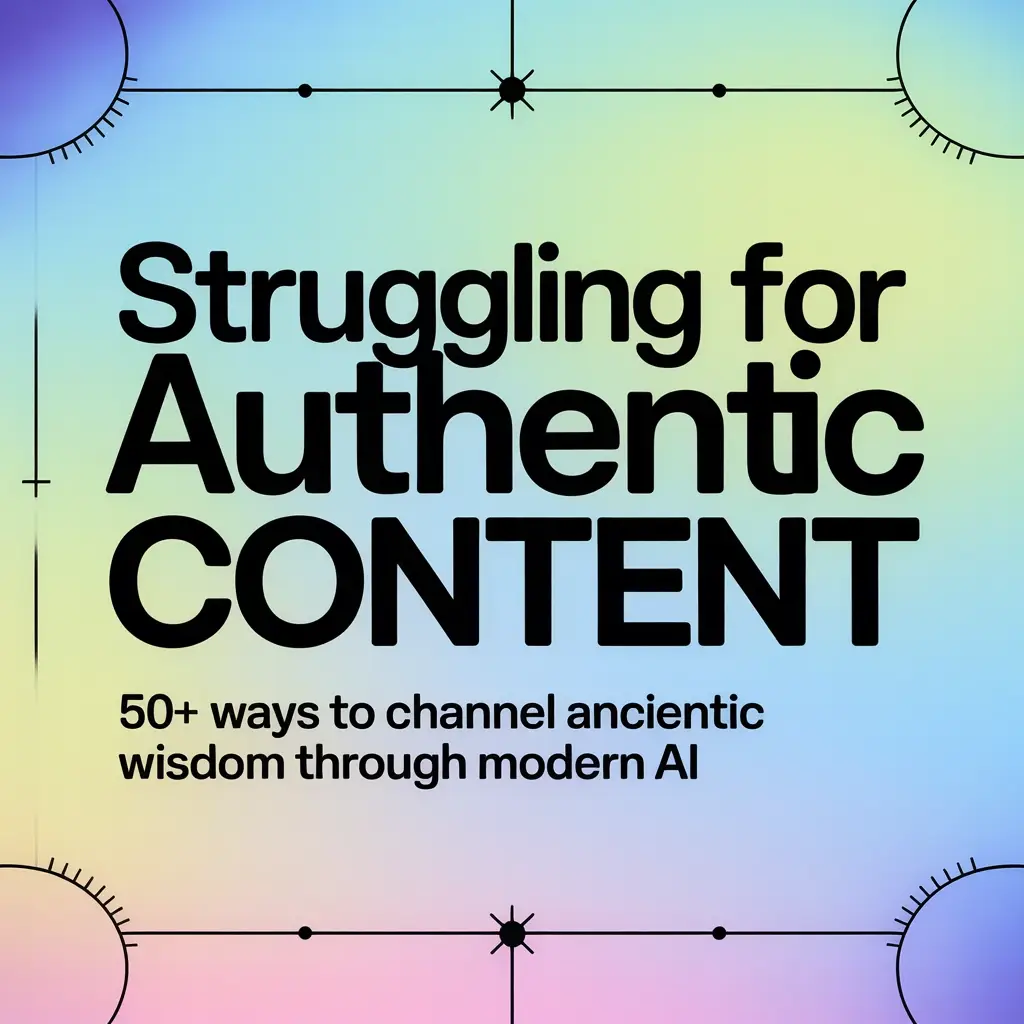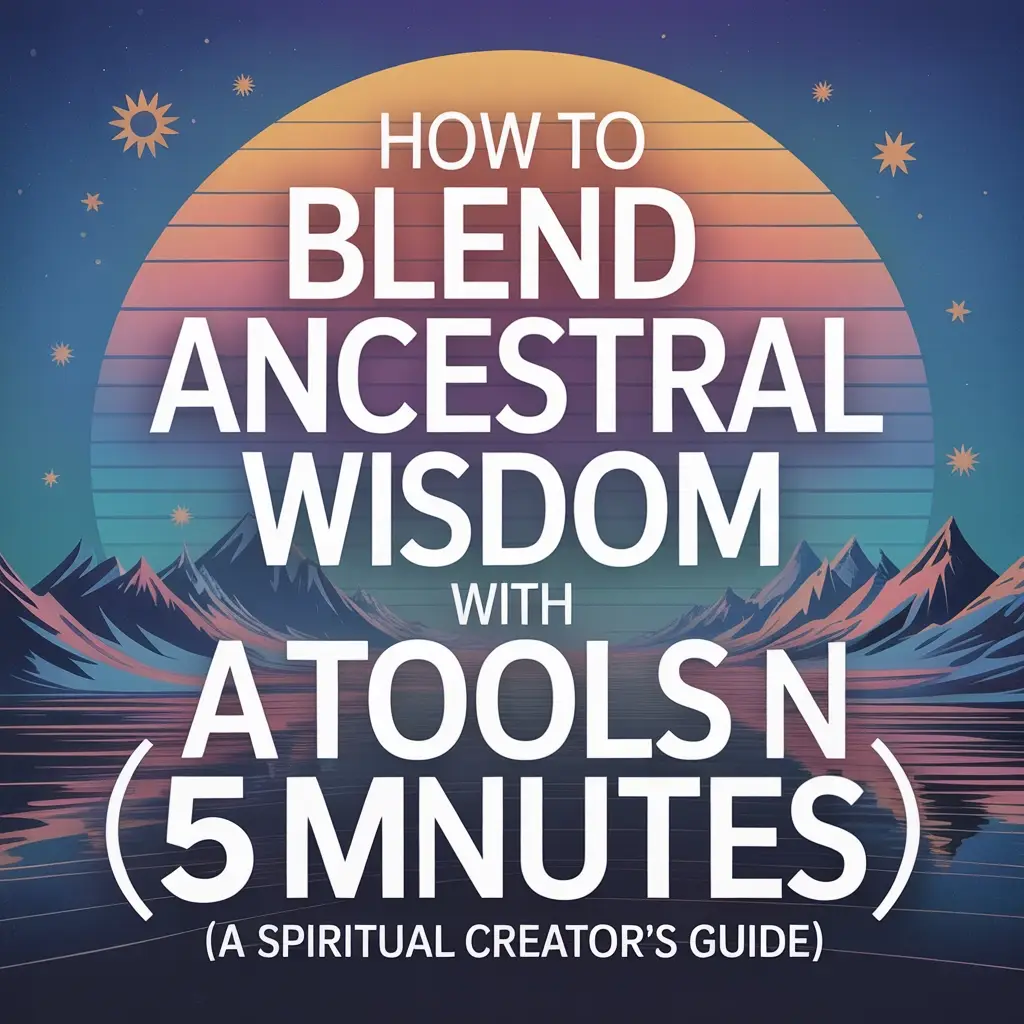Walk into any meditation app store or scroll through spiritual content online, and you'll see AI promising to personalize your spiritual journey. Custom affirmations based on your mood. Meditation sessions tailored to your stress levels. Prayer suggestions that match your beliefs.
It sounds pretty amazing, right? But here's the thing: there's a massive difference between what AI thinks is "personalized" spirituality and the real deal.
What AI-personalized spirituality actually offers
AI spiritual tools work by analyzing data. They look at your app usage, survey responses, and behavioral patterns to create what they call a "personalized experience."
Tools like Headspace and Calm track how often you meditate, what time of day you prefer, and which sessions you complete. Then they serve up more of the same. Faith-based apps analyze your religious background and feed you content that matches your denomination.
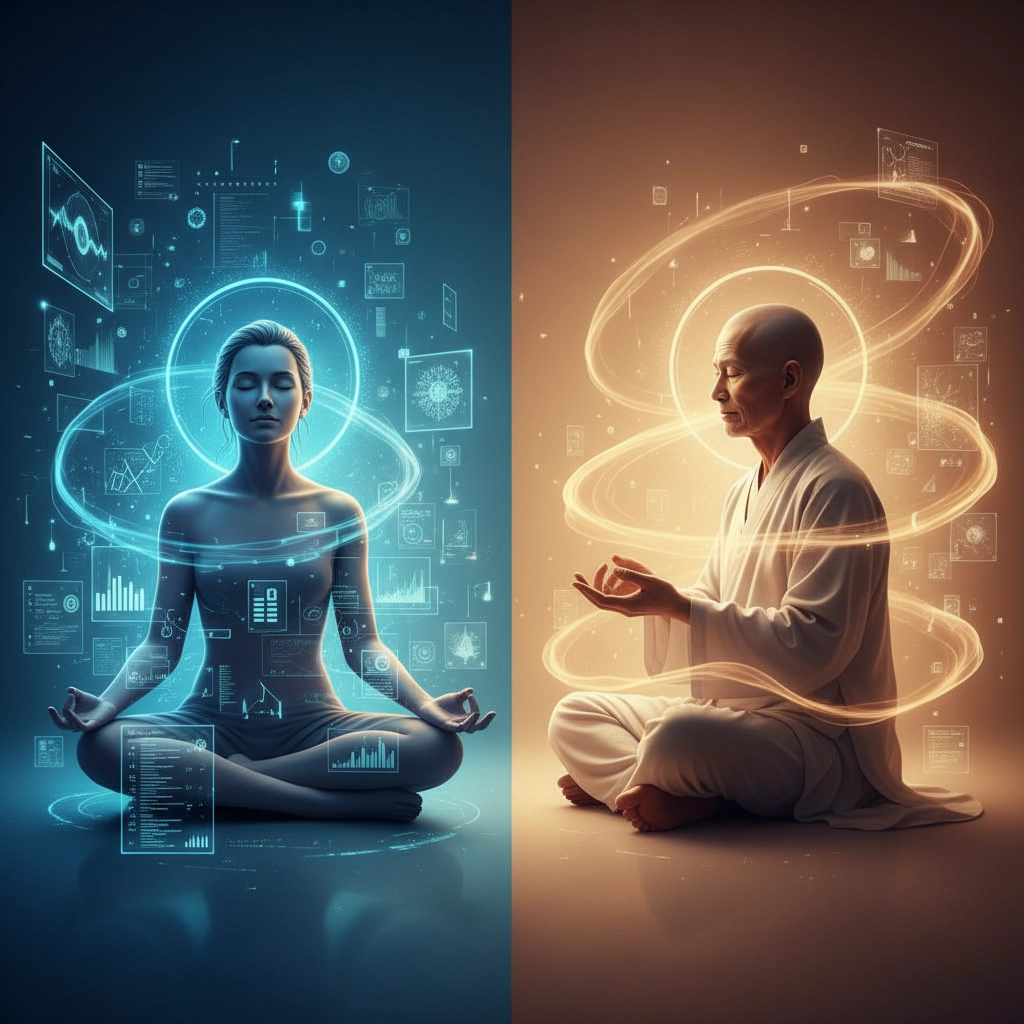
The benefits are real. You get 24/7 access to spiritual content. No scheduling conflicts with human teachers. No awkward small talk before getting to the deep stuff. And for people just starting their spiritual journey, AI can provide a gentle introduction without the intimidation factor.
Some AI tools have gotten pretty sophisticated. They can adjust meditation lengths based on your calendar, suggest breathwork when your smartwatch detects stress, or offer scripture verses that align with your current life challenges.
But here's where it gets tricky. AI personalization is really just pattern matching. It's saying, "People like you tend to enjoy this type of content." It's not actually seeing you as an individual with unique spiritual needs, blocks, and growth opportunities.
Think about it this way: AI might notice you always skip the loving-kindness meditations and conclude you prefer mindfulness practices. But maybe you're avoiding loving-kindness because that's exactly what you need to work on. A human teacher would spot this resistance and gently guide you toward it.
What actual personalized spiritual work looks like
Real personalized spiritual work happens in relationship. It starts when another human being – whether a teacher, coach, or mentor – actually sees you. Not your data patterns, but your energy, your blind spots, your potential.
This kind of work doesn't just respond to your preferences. It challenges them. A good spiritual teacher might suggest practices that feel uncomfortable at first because they can see where your growth edge is.

I once worked with a meditation teacher who noticed I was using breathwork to avoid feeling difficult emotions. Instead of giving me more breathing techniques (which is what an AI would have done based on my "preferences"), she guided me toward body awareness practices that helped me feel safe with emotional intensity.
Personalized spiritual work also adapts in real-time. If you show up to a session having just received difficult news, a human teacher can pivot the entire approach. They might drop the planned lesson and focus on presence and grounding instead.
This kind of work also accounts for your whole life context. Your family dynamics, work stress, relationship patterns, and life stage all influence your spiritual development. A human teacher can help you integrate spiritual practices with these realities in ways that actually create lasting change.
And here's something AI simply cannot offer: transmission. There's an energetic component to spiritual learning that happens between teacher and student. Call it presence, consciousness, or just good old-fashioned human connection – but this transmission is often what catalyzes real transformation.
The data problem with AI spirituality
AI spiritual tools are only as good as their training data. And most of that data comes from mainstream, accessible spiritual content. This means AI tends to serve up generic, one-size-fits-all guidance dressed up as personalization.
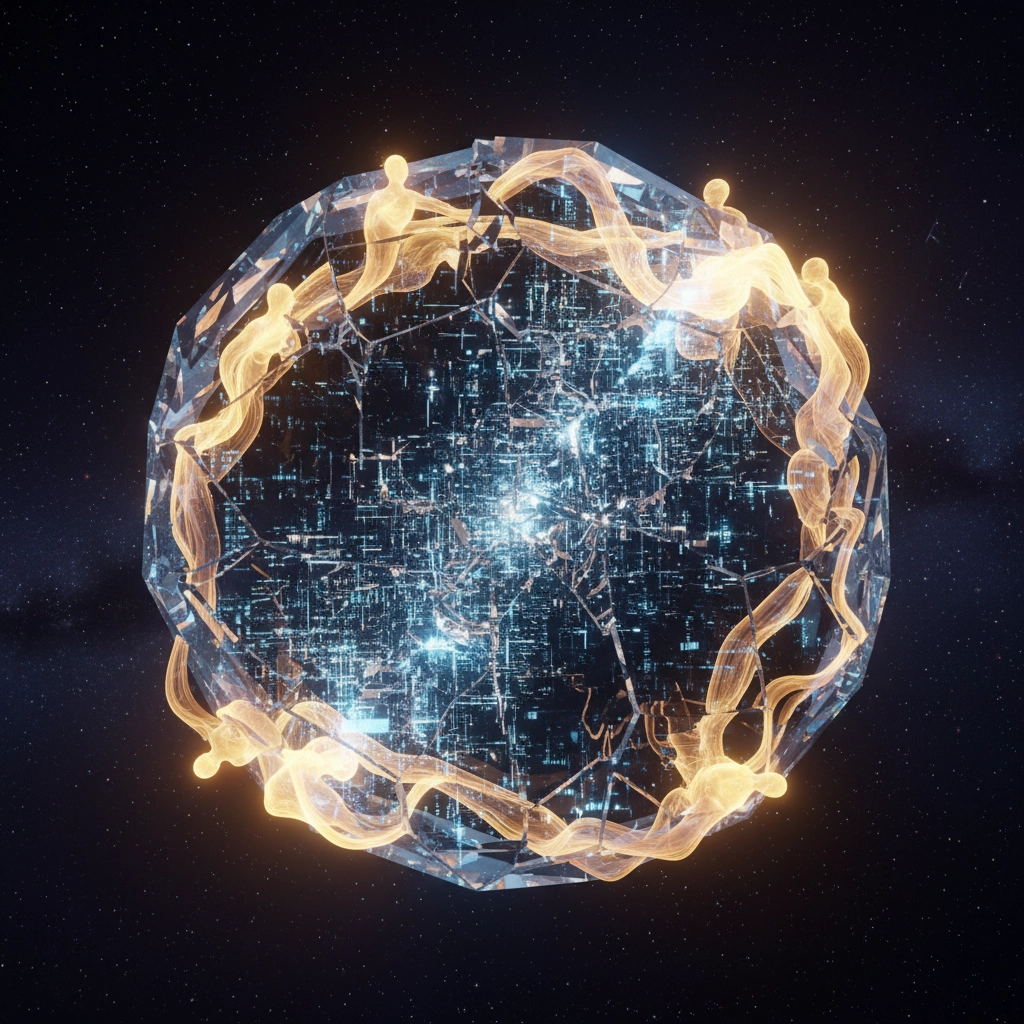
The algorithms also have built-in biases. They're trained on content created primarily by certain demographics and spiritual traditions. So if your authentic spiritual path doesn't match the dominant patterns in the training data, AI might actually lead you away from what serves you best.
There's also the issue of spiritual bypassing. AI tools often optimize for user engagement and positive feelings. They're not designed to guide you through the difficult but necessary parts of spiritual growth – the shadow work, the ego dissolution, the dark nights of the soul that are essential for real transformation.
When AI spirituality actually helps
To be fair, AI spiritual tools aren't useless. They serve specific purposes really well.
For beginners, AI can provide a low-pressure introduction to spiritual practices. If you've never meditated before, an app that guides you through basic techniques can be incredibly valuable.
AI is also great for maintenance and consistency. Once you know what practices serve you, AI can help you stick with them. Reminders, progress tracking, and gentle nudges can support an already established practice.
For people in spiritual communities that don't exist in their geographic area, AI can provide access to teachings and practices they wouldn't otherwise encounter. This is especially valuable for those exploring less mainstream spiritual paths.
And sometimes, you just need practical support. If you're stressed at work and need a quick grounding technique, AI can deliver that efficiently.
The integration approach
Rather than choosing between AI and human guidance, consider how they might work together in your spiritual development.
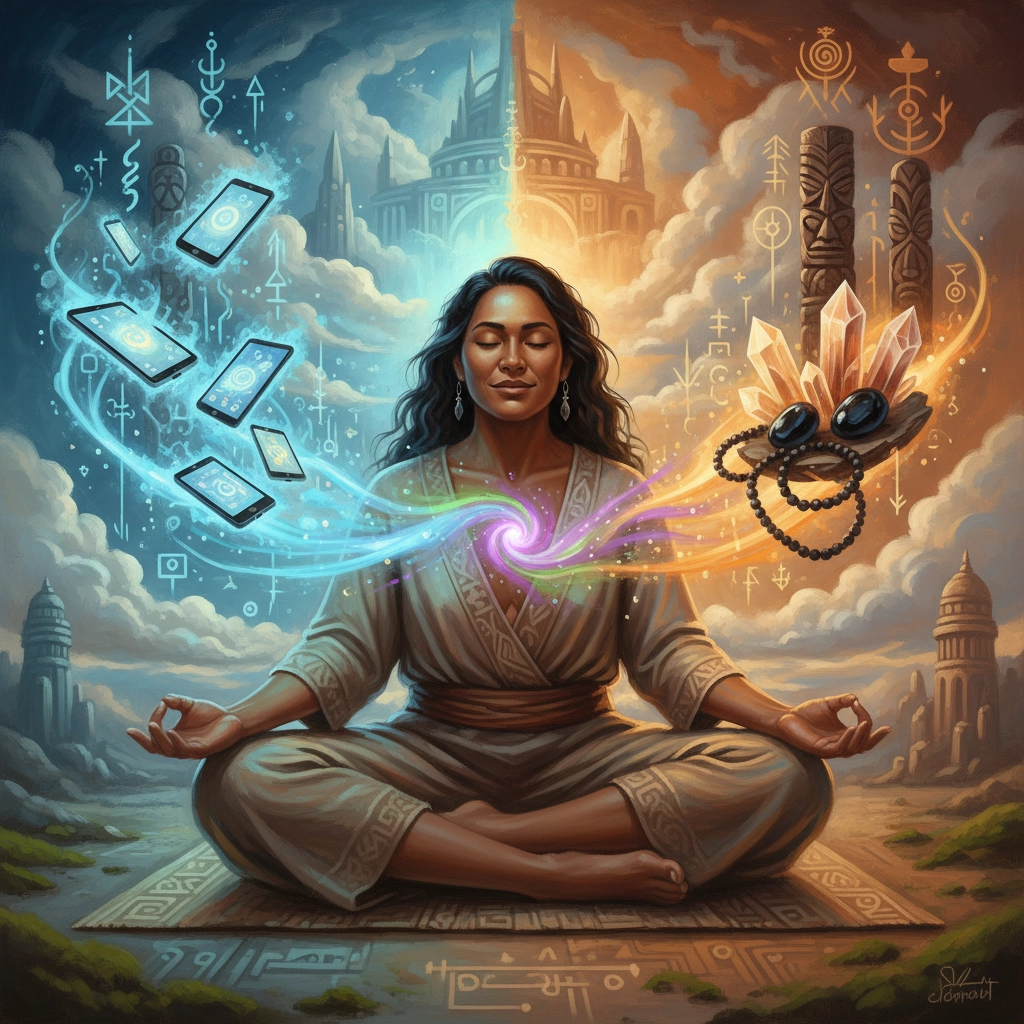
Use AI tools for what they do well: providing consistent access to basic practices, tracking your progress, and offering content when human support isn't available. But rely on human teachers for the deeper work – the places where you need to be seen, challenged, and guided through transformation.
Think of AI as spiritual training wheels, not the bicycle itself. It can support your practice, but it can't replace the essential human elements of spiritual growth: relationship, challenge, presence, and transmission.
Many spiritual teachers are now incorporating AI tools thoughtfully into their work. They might use apps to assign homework practices between sessions, or leverage AI to help track student progress. But the core of the work – the seeing, the guidance, the energetic transmission – remains deeply human.
Making the choice that serves your growth
Your spiritual development deserves more than algorithmic pattern matching. While AI can support your practice in specific ways, don't mistake convenience for transformation.
If you're serious about spiritual growth, invest in human relationships. Find teachers, mentors, or communities where you can be truly seen and supported through real change. Use AI tools as supplements, not substitutes.
The path of authentic spiritual development has always required courage, commitment, and connection with others who've walked the path before us. No algorithm can replace that fundamental human element of the journey.
Your spirituality is too important to outsource to a machine. Use technology wisely, but remember – the most profound spiritual work happens in the sacred space between human hearts and minds, not between you and your phone screen.

